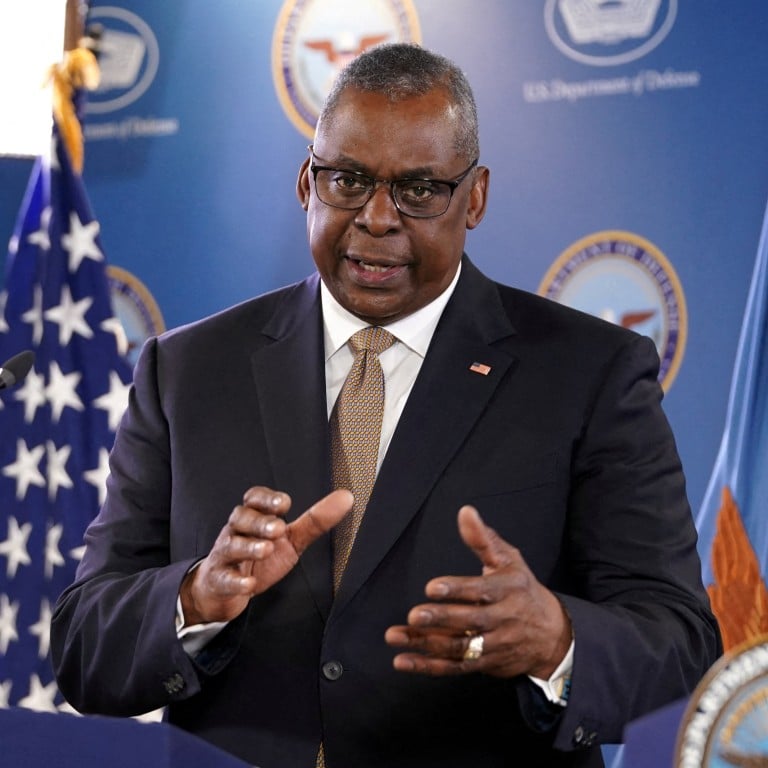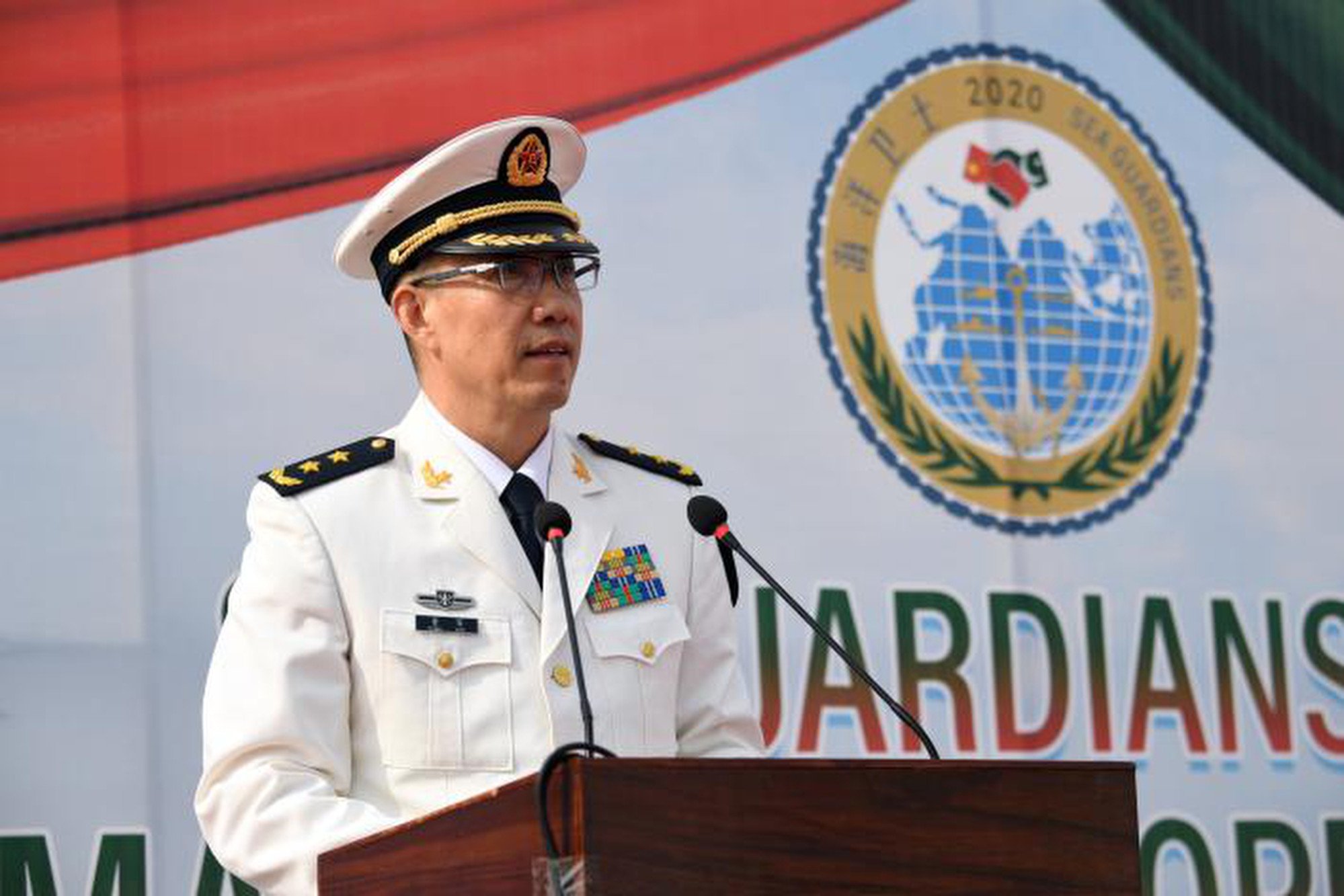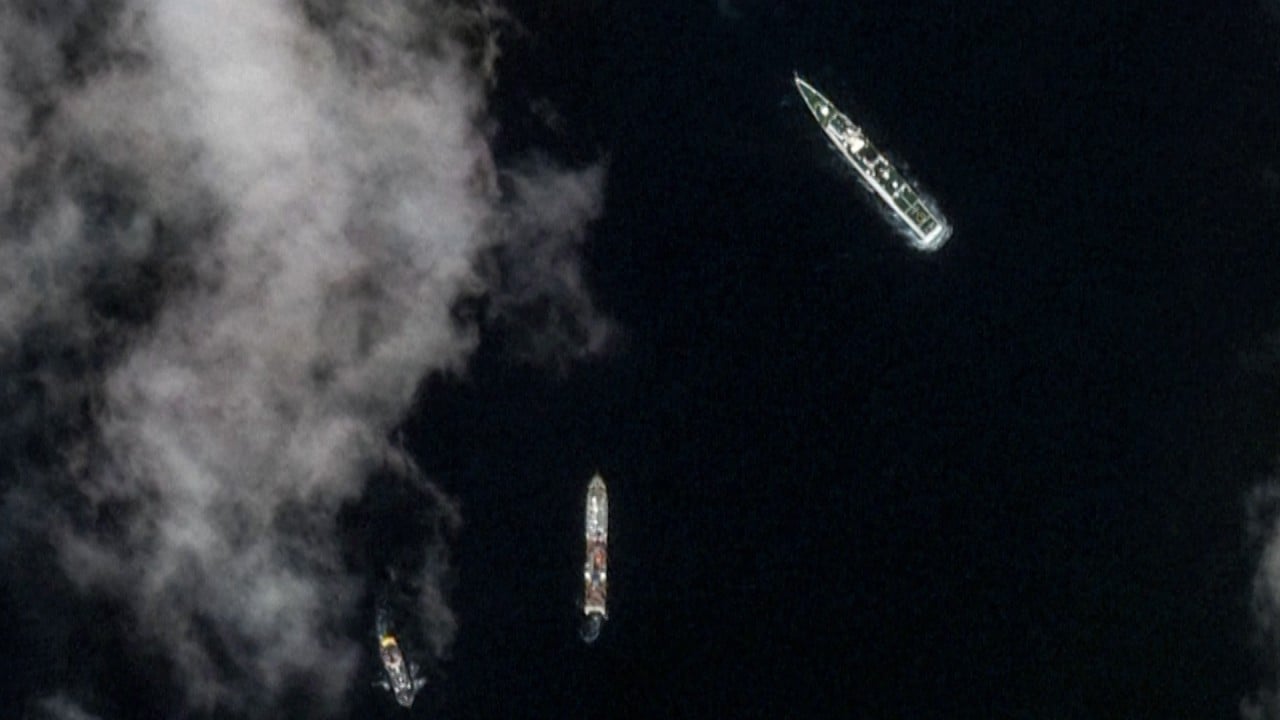
US, Chinese defence chiefs talk for first time in more than 2 years
- The video call between Lloyd Austin and Dong Jun, who was appointed defence minister in December, is the latest sign of a thaw in US-China relations
- Austin ‘underscored the importance of respect for high seas freedom of navigation guaranteed under international law, especially in the South China Sea’
After an extended chill between the two militaries, US Defence Secretary Lloyd Austin spoke with China’s defence minister, Admiral Dong Jun, on Tuesday, the first such communication with his Chinese counterpart in over two years and the first time since Dong was appointed in December.
Dong and Austin discussed US-China “defence relations and regional and global security issues” during their video call, a Pentagon spokesman said. “Secretary Austin also emphasised the importance of respect for high seas freedom of navigation guaranteed under international law, especially in the South China Sea.”
Austin also “reiterated that the United States remains committed to our long-standing one China policy, which is guided by the Taiwan Relations Act,” the spokesman said, “and he reaffirmed the importance of peace and stability across the strait.”
The Pentagon spokesman cited the importance of open lines of communication between the two militaries and reaffirmed the decision at last year’s summit that both sides resume telephone conversations between theatre commanders.
“He also reiterated that the United States will continue to fly, sail and operate – safely and responsibly – wherever international law allows,” the Pentagon said, adding that Austin “underscored the importance of respect for high seas freedom of navigation guaranteed under international law, especially in the South China Sea”.
Philippines, US, Japan to boost cooperation to deter Beijing in South China Sea

The Chinese embassy in Washington said on Tuesday that the Philippines had repeatedly infringed on China’s territory and made “provocations”, adding that the trilateral meetings were not constructive.
Beijing agrees to South China Sea hotline with Vietnam as Manila tensions spike
“Certain countries keep seeking backing from non-regional countries as they infringe on China’s sovereignty and rights and make provocations at sea,” the embassy said. “What they have done has escalated the tensions. We resolutely oppose non-regional countries meddling and sowing discord to escalate the situation.”
The State Department on Tuesday said the US was disquieted by the growing volume of materials moving from China to Russia in recent months that Moscow has used to rebuild its industrial base and make weapons that are showing up on the battlefield in Ukraine.
Analysts said the news was welcome, if not completely unexpected.
US must treat China more like a cold-war opponent: Republican policymakers
“Unsafe encounters are down, and I fully expect an in-person meeting between the two heads on the sidelines of the Shangri-La Dialogue later this summer,” said Sourabh Gupta, senior fellow at the Institute for China-America Studies in Washington, adding that this was also probably discussed on Tuesday.
“In a year of election polemics, I suspect the Chinese side would like to keep communications channels open and the conversation going,” he added. “And with a new Taiwanese president soon to be sworn in, the US would prefer less than more drama in the strait. The South China Sea is already lit up enough.”
Others said it would be difficult for the two sides to move beyond the usual platitudes given protracted tensions.
“I think it is good that the lines of communication are finally reopening after a long period,” said Zack Cooper of the American Enterprise Institute, a Washington-based think tank.
“There is a lot for the two sides to talk about, particularly China’s actions in the South China Sea and Taiwan Strait, both of which could be volatile in the next few months,” Cooper added.
Additional reporting by Igor Patrick in Washington


